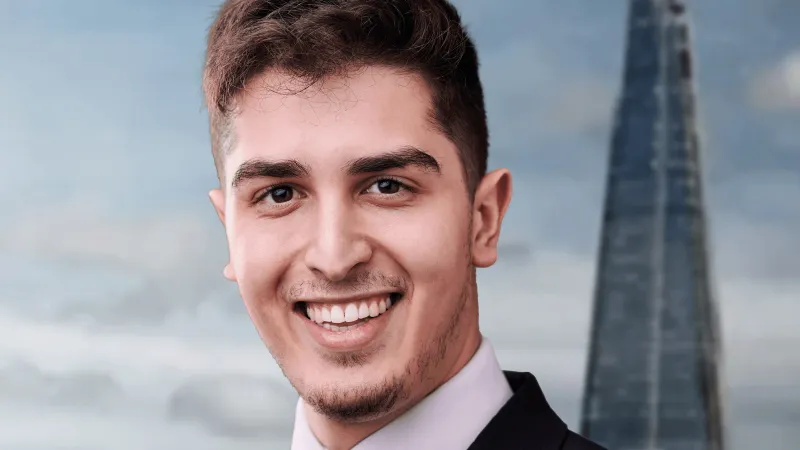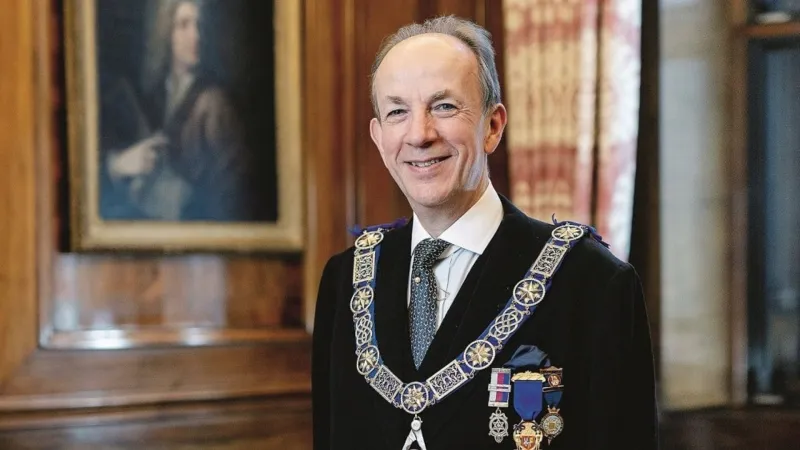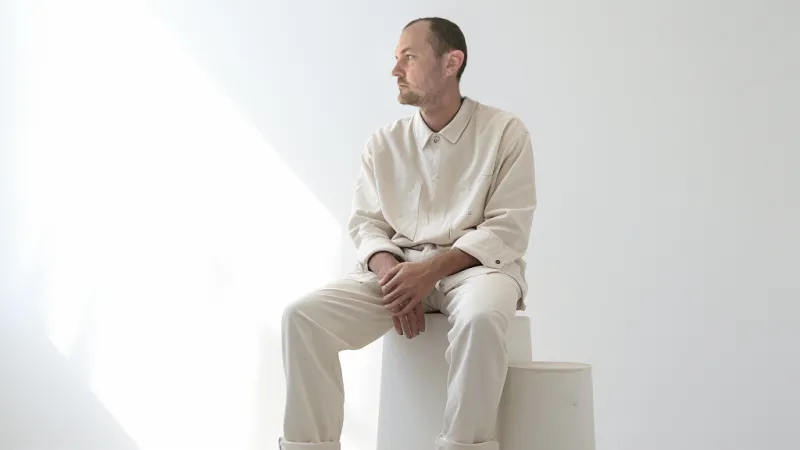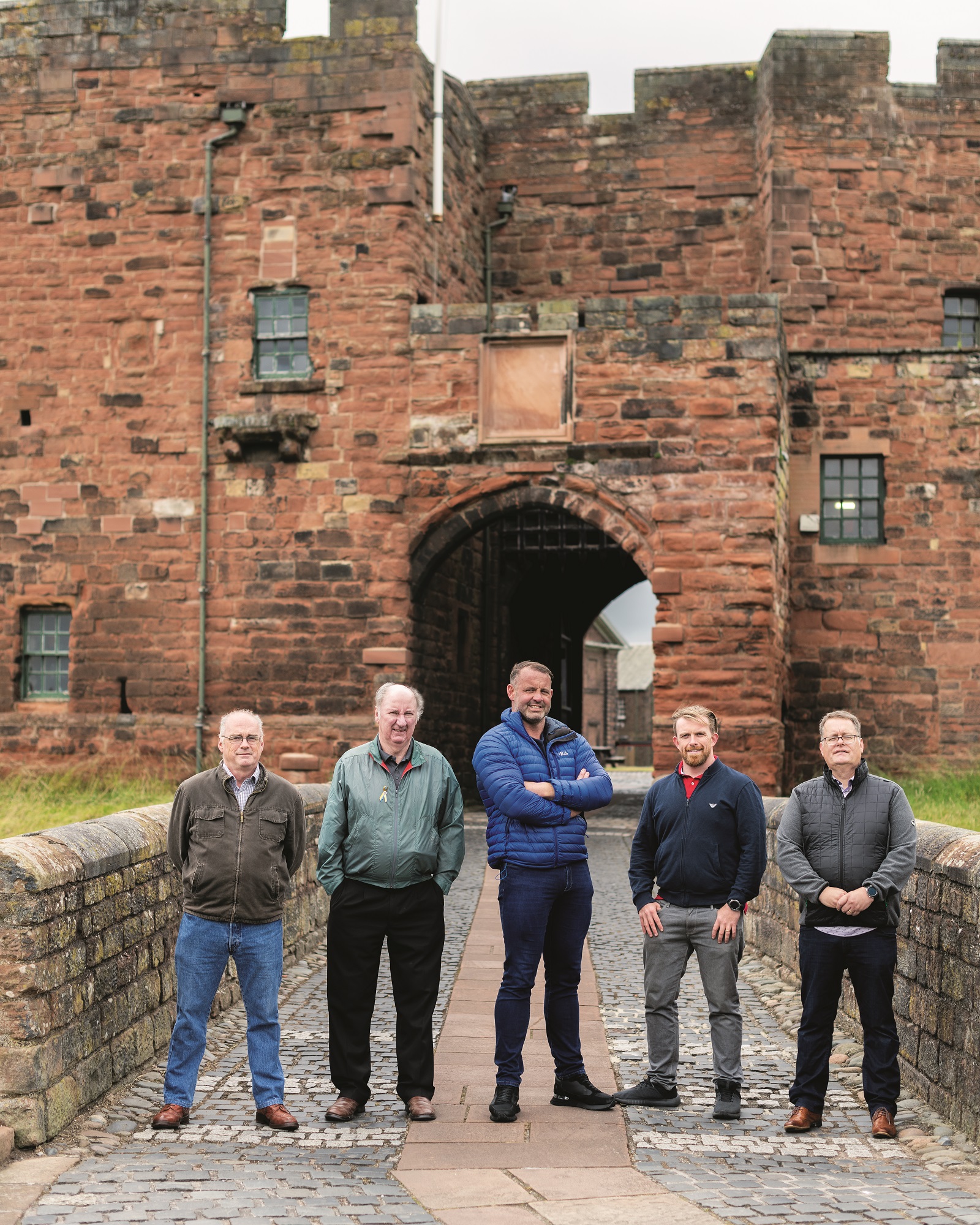
When Russia invaded Ukraine in February 2022, individuals and organisations all over Europe wanted to help a country and population that had been thrust into a war zone. These included Grand Lodge, which made an immediate £50,000 donation to the British Red Cross and went on to raise a further £500,000 for refugee charities.
However, in the far north-west of England, a group of Freemasons decided to do their own bit, driving two vans of supplies from Carlisle to the Ukraine border, a distance of some 1,500 miles. It’s a reminder that charity isn’t always about writing a cheque – donating time, effort and skills is an important part of being a Freemason.
‘We were directly helping a community in need,’ says Neil Dixon, one of five Freemasons from four of the East Lakes Group of Lodges to make the journey. ‘This was aid going straight to people. It wasn’t sitting in a warehouse waiting to be processed; we were handing it over directly in a war zone. We felt we were doing what Freemasons do best, and that’s helping others who are less fortunate than ourselves. To think that people from this small province in Cumbria could do something to help a community in Kyiv meant everything to us.’
The initial impetus came from Paul Proctor, a Freemason who started collecting items in Penrith to donate to Ukraine. Other Freemasons came on board, including Neil, Richard Graham, Grant Todd, Alan Morley and Peter Terry. The wider community was eager to help and, before long, families, schools and businesses were all pitching in.
That’s when the idea of driving to Poland took hold. One of Richard’s neighbours was Nadiya Layuk, a Ukrainian who had lived in Carlisle for 19 years. Nadiya knew people in Kyiv who were living in tents, surviving bombs, pests and freezing temperatures without access to food, warm clothes or basic medicine. Through talking to Nadiya, the Freemasons were able to make direct contact with a community in Ukraine that was in need of aid.
On 2 April, the two vans set off, with driving shared by five Freemasons – Neil, Paul, Richard, Grant and Alan. ‘We planned to have six, but Peter had to drop out and instead went a few weeks later,’ says Neil. ‘Very sadly he passed away in May.
‘We drove two big vans packed with warm clothes and basic medical equipment, such as bandages, toiletries and non-perishable food. These were all items that the people in Ukraine had specifically requested or said they needed, so we didn’t just fill a van with stuff that was useless to them.’
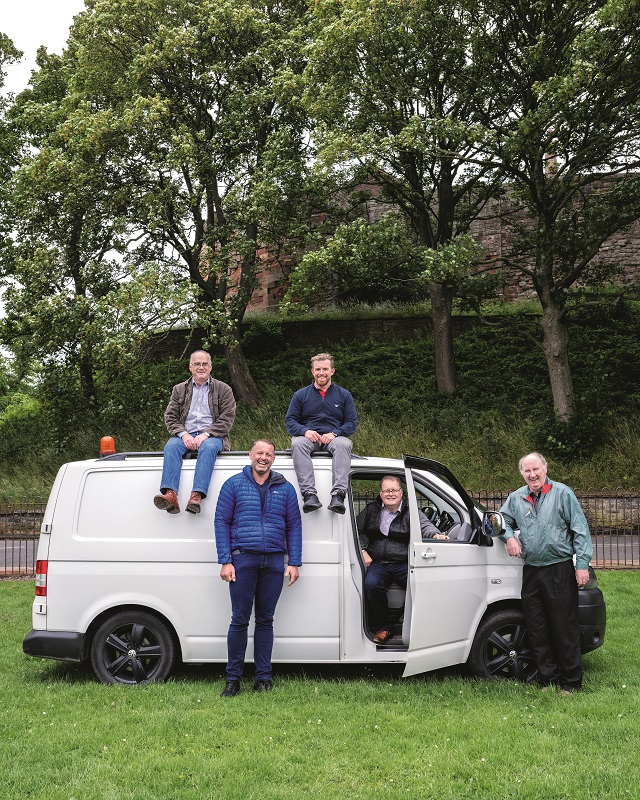
After driving to Newcastle, the group took the overnight ferry to Amsterdam. The following morning, they began the long drive across the Netherlands, Germany and into Poland. The convoy was decorated with the Ukrainian flag and the emblem of Cumbrian Freemasons, and received a positive reception at passport control, as well as from other motorists and pedestrians as they continued through Europe.
The Freemasons weren’t the only group taking aid from the UK. At one point, they passed a convoy of British Army vehicles, seven or eight miles long, delivering military support to Ukraine.
Their contact in Ukraine was Sergei, who crossed the border at Lviv to meet them. In his own journey across the country, Sergei had been accompanied by a younger man, who was not allowed to cross the border as he was of fighting age. It was a reminder of the reality of the war, as was the news that at the border they were only about 20 miles from where bombing was taking place – roughly the distance between Carlisle and Penrith, as Neil puts it.
‘We talked to Sergei and made a video,’ says Neil. ‘He was very grateful, extremely upbeat and determined, saying, “We will fight and we will win”. It reminded us that Ukrainians were fighting for their lives and that we were helping them, even just that little bit.
‘The aid was delivered and stored in a church in Kyiv, and we were sent pictures of the destination and it being unloaded. A girl from a primary school in St Bees, Cumbria, had made a box with supplies including toothpaste, toothbrush and toiletries, and this actually got handed to a Ukrainian soldier in Kyiv. Amazing!’
After a cup of tea at the border, the Freemasons got back in their vans and set out on the route they had come. This time, they did at least stop for the night outside Berlin – the first beds they had slept in for 44 hours. W hen they got on the ferry, they discovered their barman was Ukrainian. ‘He kept thanking all of us – he was so appreciative of what we had done for his country,’ says Neil.
The group’s social media updates received a fair bit of attention, including an interview recorded at the Polish border with Capital Radio in Manchester. Recognition also came from within Freemasonry, with their Provincial Grand Master Bill Bewley offering the group a commendation for their efforts.
For Neil, it’s all part of being a Freemason. ‘The core principles of Freemasonry are friendship, integrity, respect and charity, and we showcased all of those aspects,’ he says. ‘We got the community involved, we collected the aid Ukraine needed and then delivered it, personally, to the people. This is one of the reasons I like Freemasonry. Those core values are amazing and help you through life.’
The team are talking about another trip to deliver aid, but also have plans to support Ukraine when the war finally ends. ‘Sergei invited us back for a beer when the war is over, but we thought it would be good to go back and help them rebuild,’ says Neil. ‘Maybe we could tie that in with a visit to the Ukrainian Grand Lodge. That would be a fantastic way to close the loop. This was a bonding experience. We were friends before this, but we’ve now shared something that will last forever.’
